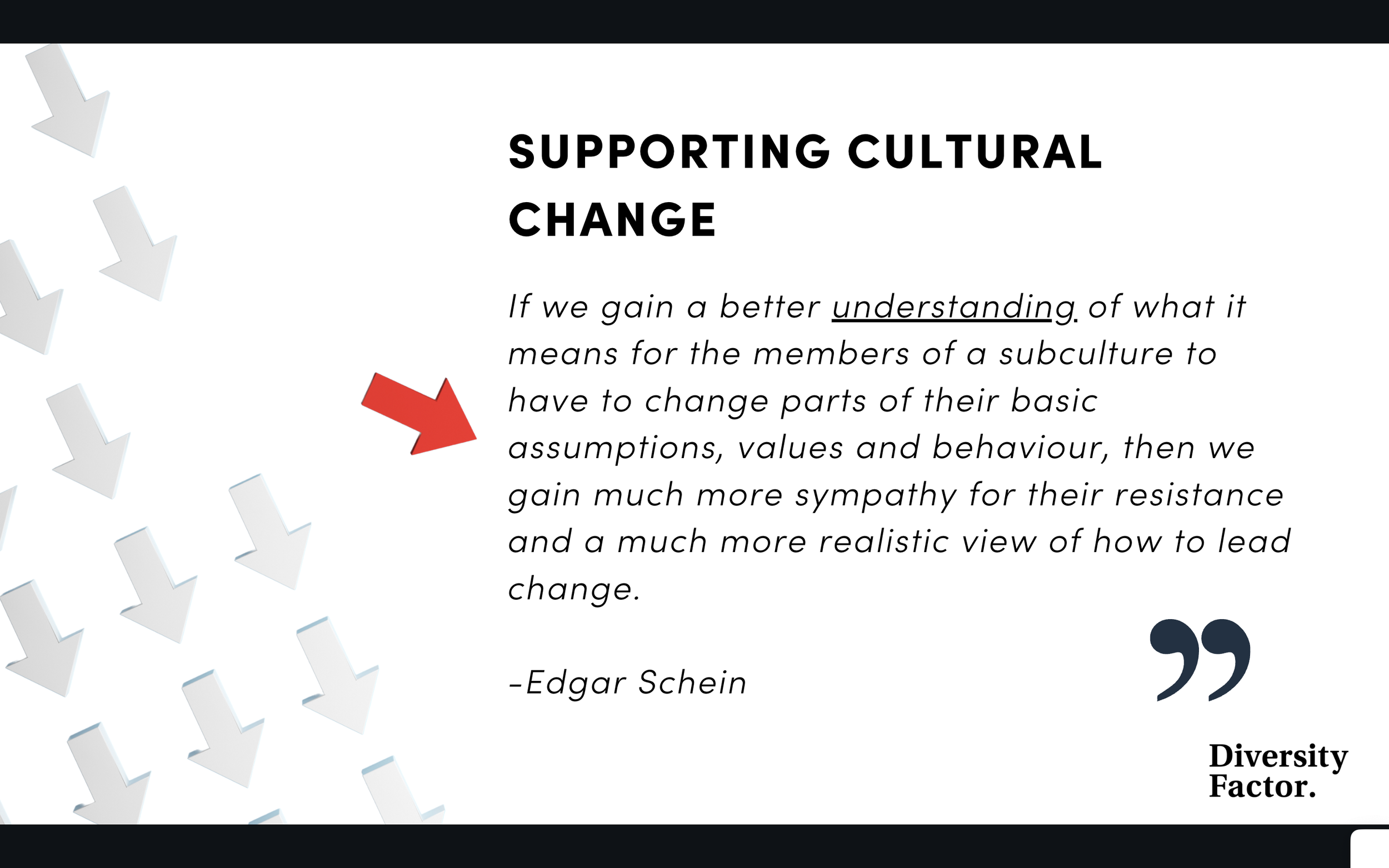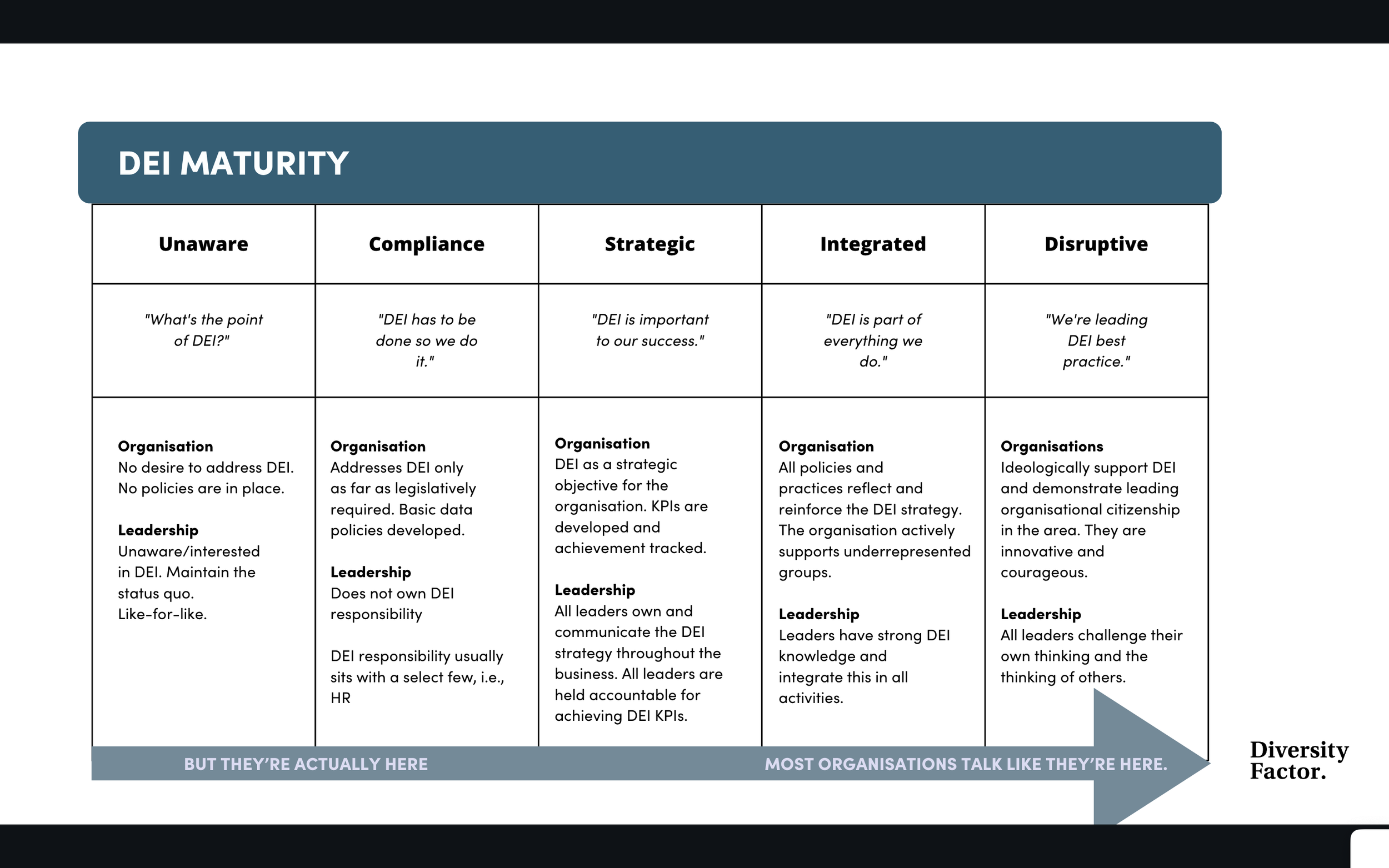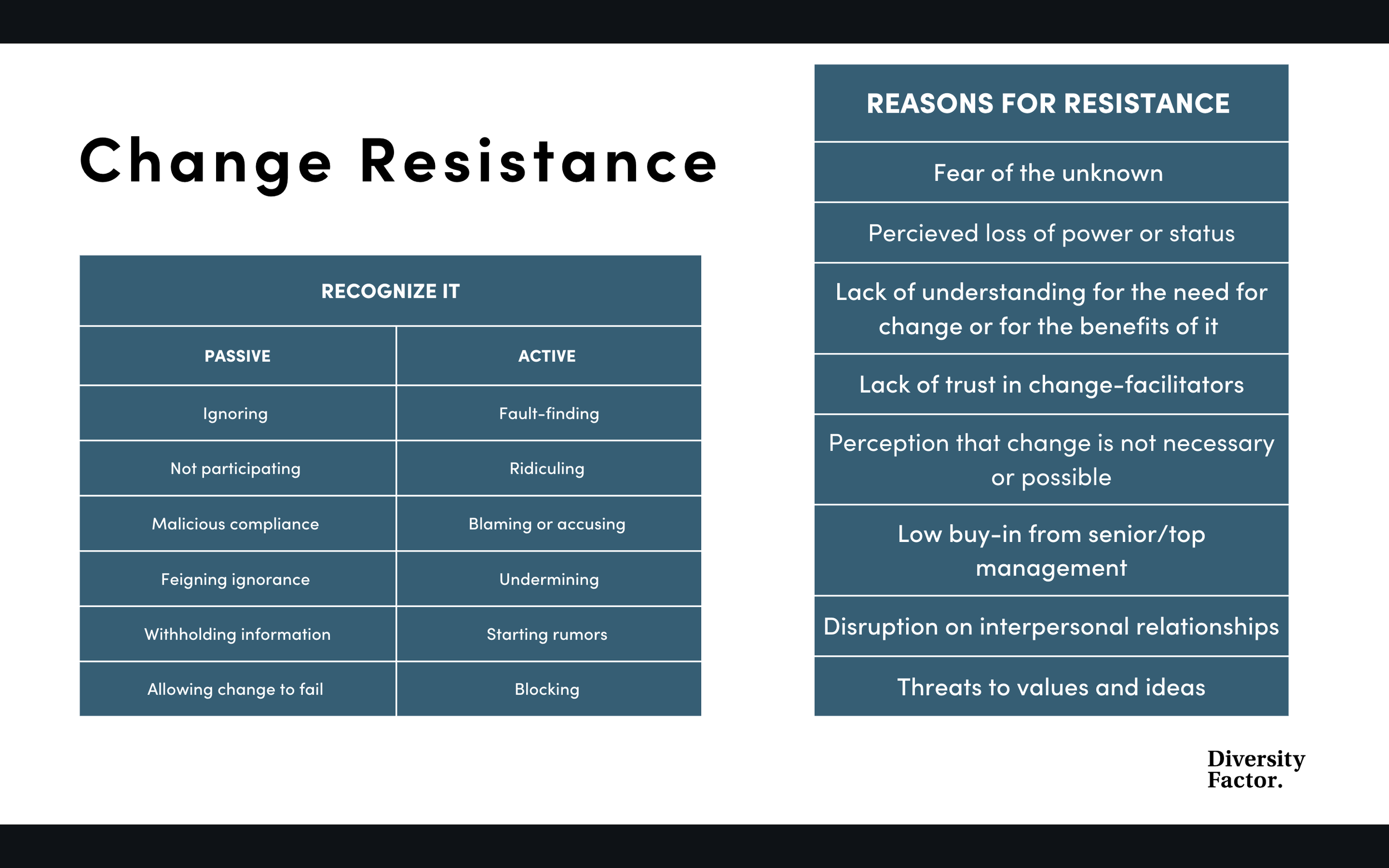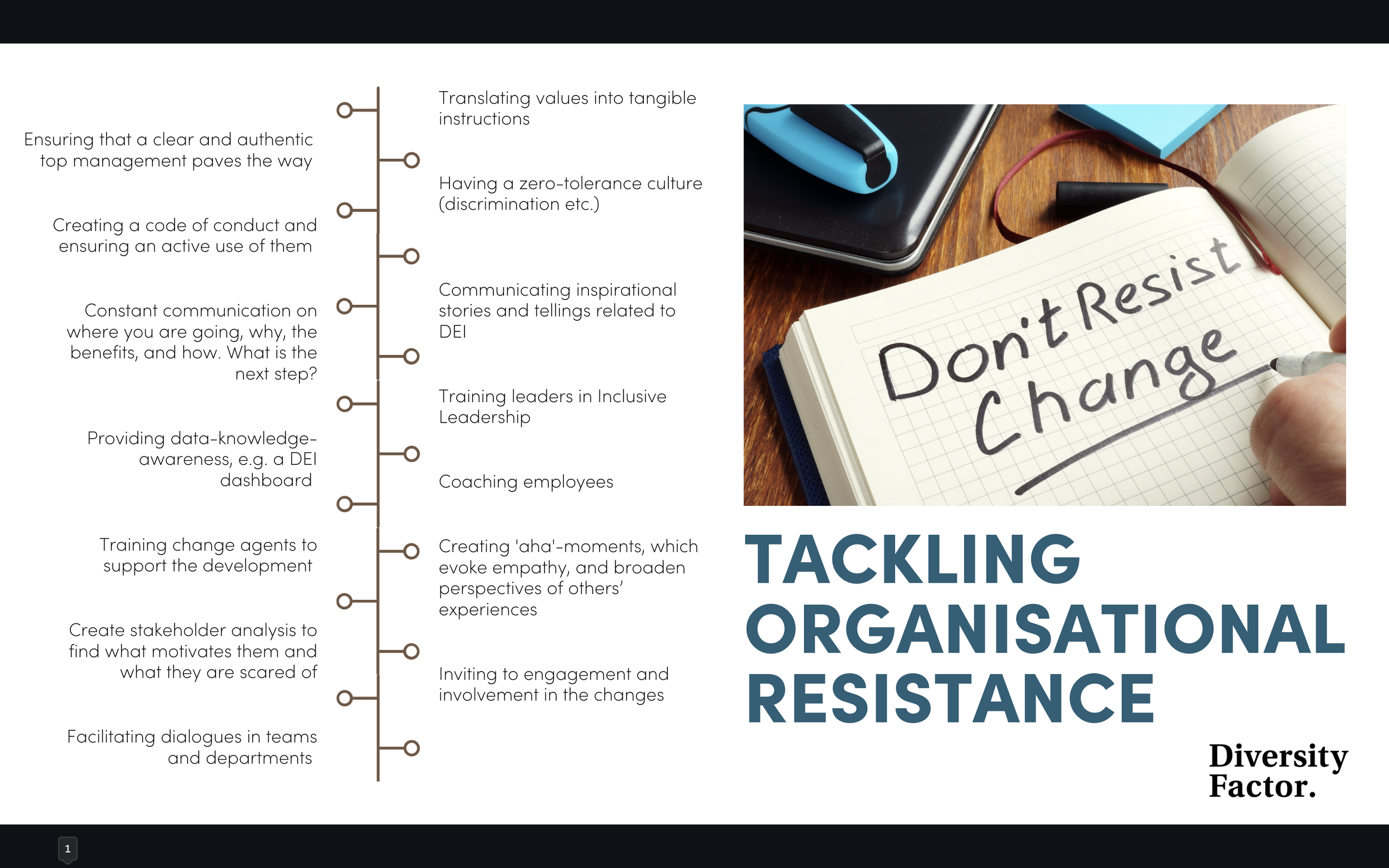DEI Work: Addressing Resistance and Driving Change
When we teach the "How to Implement D&I in Organizations" course, #resistance to change is a topic we thoroughly explore. It's a significant concern for DEI professionals for obvious reasons. Hence, we often find ourselves advising clients on handling it.
Resistance needs to be managed in day-to-day work, but we also observe how it permeates through (social) media and the industry. Some believe DEI has gone too far*, while we hear peers discuss companies' commitment swinging both sides, e.g. regarding allocated resources**. Lack of commitment or stagnation also manifests as resistance.
Therefore, we aim to provide insights into how we at Diversity Factor approach DEI work and some of the topics we address concerning resistance. Our primary goal is to support, inspire, and cheer on our DEI peers. Along the way, we link to additional materials so you can delve deeper into some areas.
Let's be honest: There's no quick fix when facing a group of managers who don't acknowledge challenges like #discrimination or #racism. But when well-equipped, it's easier to stand strong in adversity and lead the way to development for others.
During our course, we delve into the causes of individual resistance to change and analyse organisations' DEI maturity. We explore what it takes to develop individuals and organisations and how, as DEI professionals, we can navigate the challenges that DEI work brings.
How can we handle resistance constructively? How do we avoid creating more resistance? How can we understand individual and organizational reactions? And how can we gain followership and support? We draw on various disciplines, theories, and models and share practical experiences to explore these questions. This equips our participants to handle different situations.
The Three Basic Principles
At Diversity Factor, our approach to creating DEI change is based on three principles, which also form the basis for addressing natural resistance:
1. DEI is for everyone:
Our mission is to create workplaces where everyone thrives. We recognize the intersectionality in diversity, where different identity markers interact, creating privileges or disadvantages in various situations and contexts. By becoming aware of our own and others' privileges, we can foster better understanding and engagement in DEI work.
Let's elaborate briefly: A black woman (doubling up on the intersectionality count) will experience different challenges than a white man in the same situation. For example, she may encounter more #conscious and #unconscious #bias in meetings or recruitment processes. The more minority markers a person has, the more challenging the #inclusion conditions become if not deliberately created.
2. DEI is strategic, organisational change:
Whether we're talking about organisations or individuals, we focus on identifying the DEI maturity level and adjusting our actions and communication accordingly.
Communication is crucial for successful change, and we need to understand the cultural and individual mechanisms affecting inclusion.
3. We drive DEI change through data-driven awareness:
Data is crucial for determining where we are and where we need to go in our DEI initiatives. It helps reveal and challenge myths about equality and justice in organisations and society. Let's provide some examples: "Everyone has equal opportunities if they want them," or "We only choose the most qualified," or how about: "There's no #racism and #discrimination in Denmark; it's an American phenomenon." Perhaps you've heard some of these myths - facts easily dispel them.
Inspiration for using data in DEI work:
Inclusion measurements that examine inclusion for all, including minority groups. Great for getting buy-in from top management.
Data showing that Muhammad needs to send 50% more applications than Mads to get an interview. Useful for HR and hiring managers' training.
Insights into what it takes for women to desire leadership positions and whether they're ambitious. Great for strategic work to promote diversity in leadership.
The World Economic Forum has ranked Denmark 23rd, while Iceland, Norway, Finland, and Sweden are among the top 5 most gender-equal countries globally***. An argument when dealing with denial-based resistance.
DEI work is complex, but with the right support, network, and knowledge, we can create and lead workplaces that promote #Belonging, # PsychologicalSafety, #Respect, and #Justice for all.
Now, dealing with individuals, which we always explore in the course and this whitepaper, is one thing. Another thing is the organisational level. We will let you go by providing this inspirational list:
We hope we've inspired you to continue your important work. We cheer you on and are always open for a call if you want to discuss any kind of DEI work. Just reach out to us at hello@diversityfactor.dk.
Sources:
Elon Musk Says DEI ‘Must Die’ And Criticizes Diversity Schemes As ‘Discrimination’
Den stigende kønskløft skyldes først og fremmest, at flere unge kvinder i dag er feminister
**Example:*https://www.linkedin.com/posts/ekpao_dei-is-actually-alive-and-well-many-companies-activity-7170643829451055104-ZADL?utm_source=share&utm_medium=member_desktop
*** (Source: WEF The Global Gender Gap Index 2023 rankings)





